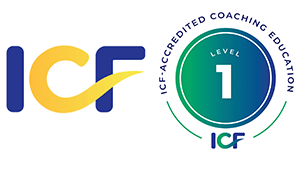In my experience, new coaches struggle with the concept of selling. Most of my coach certification students have had a lot of experience with giving away their coaching services free of charge – they have been the “go-to” person to whom family, friends, colleagues, even strangers have been drawn, to tell their stories and share their struggles. It’s because coaches’ natural gifts for effective listening and empathy leave people feeling fully “heard” and understood. People rarely get to experience that feeling, and are so grateful to experience it, they keep coming back for more.
The coach-client relationship is very special and feels magical, for both client and coach. New coaches want everyone to have access to that co-creative coaching experience. They find it extremely hard to charge people to share that experience with them. It takes some time for them to put a value on the benefits of coaching to the client, and recognize that we pay for everything in our lives, especially those things that we value highly.
Everyone has some natural talent. Some are athletic, some academic, some artistic. I liken coaches seeking to create coaching businesses to people with other gifts – figure skaters, ball players, singers, comics, etc. They hone their skills as amateurs, giving away their gifts free of charge, until they decide to go “pro.” Once they announce their new status as “professionals”, they begin to charge and collect fees for their gifts and services. Coaches are no different.
I believe that coaches in their new businesses are “professional coaches”, regardless of their certification status. As such, they must determine their value, set their fees, create a brand, choose their niche and their marketing strategies, and be ready to conduct sales conversations with prospective customers.
There is a difference between marketing and sales. Marketing is the message that attracts prospective clients to a business. Selling is not about pushing a product or service onto someone that they don’t want, it’s about saving or rescuing them from a situation that is frustrating and painful for them.
Once connected, a relationship develops between coach and prospective client, and if good, the coach must help the prospect understand the benefits and value of coaching, the fees and fee structure of the coach’s business, and what must happen for the prospect to be able to have coaching as part of their investment in themselves, by enhancing their quality of life now and for their future.
Author: Nan Einarson, CTA Mentor Coach











